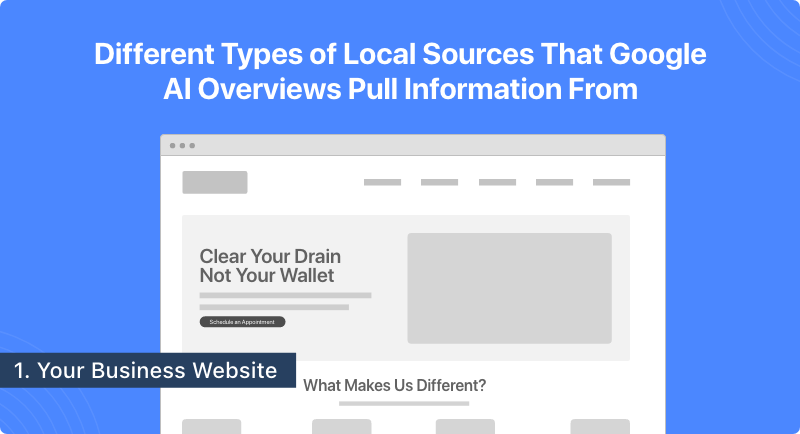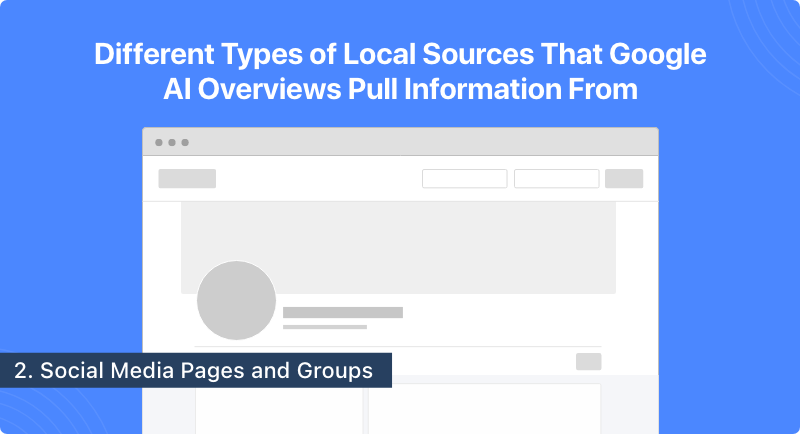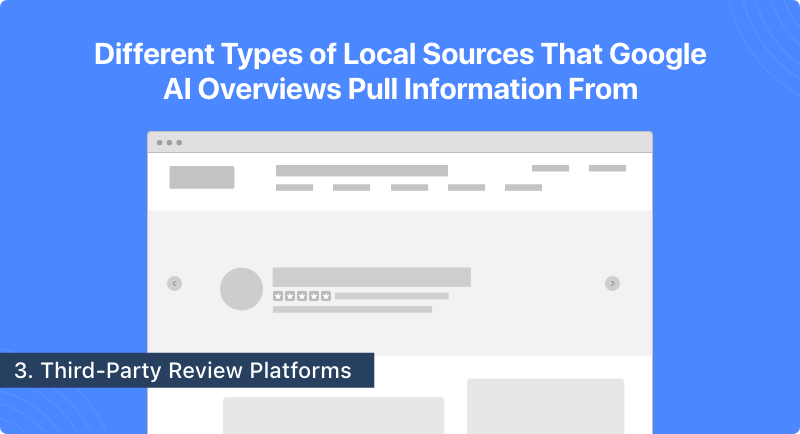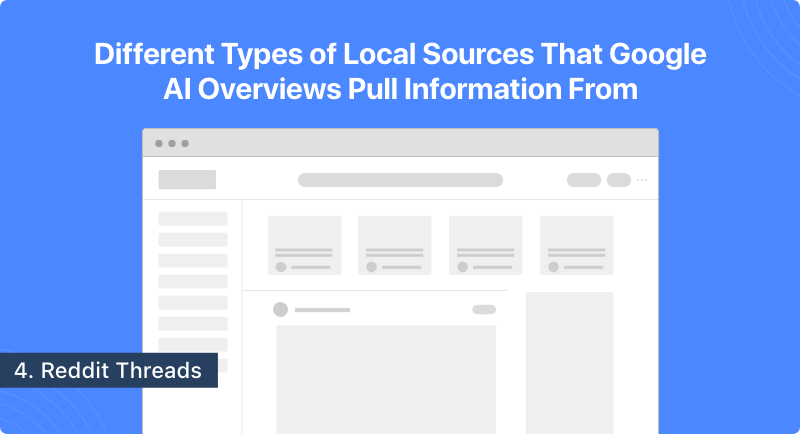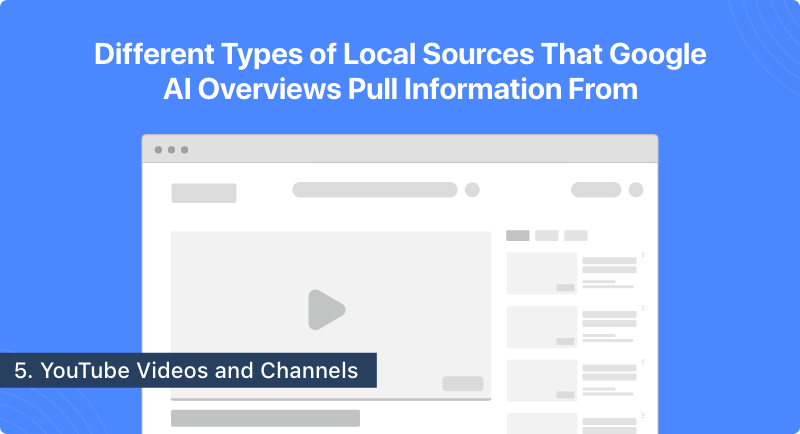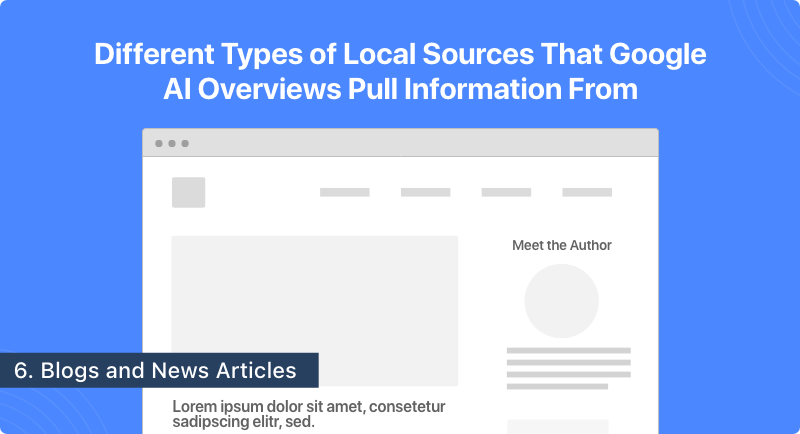Google's AI Overviews feature is changing how people get answers and potentially discover local businesses in search. These AI-generated summaries pull together information from across the web to deliver quick, conversational results, without the user needing to click through to a website to get key information.
That being said, Google AI Overviews do typically include links to sources that they've pulled information from, giving searchers the option to dig deeper if they want to get more comprehensive info.
If you're a local business owner or local SEO pro, you might be wondering: Where do Google AI Overviews get information from when they surface local businesses? Great question, and the answer matters, especially if you want to understand how your business can stay visible in AI-generated search results.
While we can't claim to have a master list of possible Google AI Overviews sources or anything like that, we can tell you that, based on real-world examples and testing, we've seen a clear pattern in the types of sources and content that AI Overviews tend to reference.
Different Types of Local Sources That Google AI Overviews Pull Information From
1. Your Business Website (Yes, It Still Matters!)
Let's start with the obvious: your official business website. Google still leans on high-quality, relevant, and well-structured business websites as a primary source of truth, especially for facts like:
- Your services
- Pricing info
- FAQs
- Locations and hours
- Menu items (for restaurants, cafes, etc.)
Even in AI Overviews that cite other sources, your business website can influence what shows up. If your website is authoritative and easy to parse (think clear headers, local schema markup, high-quality content), it's more likely to be tapped for AI-generated summary content.
2. Social Media Pages and Groups (Especially Facebook)
Facebook pages and even public Facebook groups are also showing up as cited sources in Google AI Overviews.
This often happens when people ask about local products or services in natural language, like "Where can I buy used furniture near [your neighborhood]." If a community group has a thread where your business was mentioned or recommended, Google may cite that post in the summary.
Even your own business's Facebook page could be used, particularly if it's actively maintained with hours, updates, photos, and reviews.
3. Third-Party Review Platforms (Yelp, Tripadvisor, and Niche Sites)
Google loves reviews, and that love doesn't stop at using them for ranking businesses in the local pack. AI Overviews often synthesize third-party review sentiment and point users to platforms like:
- Yelp
- Tripadvisor
- Industry-specific review sites (like Slice for pizzerias or Zocdoc for healthcare providers)
The AI may reference specific positive (or negative) phrases from customer reviews or cite the review site directly when summarizing why a business is worth visiting.
4. Reddit Threads (Yes, Really)
This might come as a surprise, but Reddit is frequently cited in AI Overviews, especially in local queries that involve personal recommendations or subjective opinions.
Let's say someone searches: "What's the best tattoo shop in Seattle?" If there's a Reddit thread where users are passionately recommending a specific business, that discussion could be referenced or summarized by Google's AI.
While Reddit may not be part of your traditional local SEO plan, it's increasingly part of the local search experience, so keep it on your radar!
5. YouTube Videos and Channels
Video is another important source for Google AI Overviews, especially YouTube, which Google owns. For example, we've seen AI Overviews cite YouTube videos reviewing restaurants or services (think: "Top 10 Pizza Places in [your city]").
If you or a customer has uploaded a detailed video featuring your business, there's a chance it could contribute to a future AI Overview.
7. Blogs and News Articles
Smaller media sites, blogs, and niche news articles can all make their way into AI Overviews, especially if they mention your business in a positive or informative context.
For instance, if a food blog names your bakery as a "hidden gem" or a local newspaper covers your community event, those mentions might contribute to a future AI summary.
Is There a Definitive Way To Know Where Google AI Overviews Get Their Information?
Google's AI Overviews pull from a wide range of public, high-quality (in Google's eyes) sources. The system is constantly evolving, and the sources can vary by query, topic, industry, and region. But, based on what we've seen so far, the most common types of Google AI Overviews sources include:
- Your business website
- Facebook pages and groups
- Yelp, Tripadvisor, and industry-specific review sites and directories
- Reddit threads
- YouTube videos
- Local news and blog articles
If you want to increase your odds of being represented positively in AI Overviews, it's time to think beyond traditional local SEO and start thinking about your digital footprint across the entire web.
Track Your AI Overview Impact with Local Falcon
You may not be able to control exactly what Google's AI Overviews show, but you can monitor your visibility and optimize your digital presence accordingly.
With Local Falcon's Google AI Overviews visibility tracking, you can run scans for conversational search queries to determine what phrases are causing your business (and your competitors) to appear in a Google AI Overview.
Then, you can analyze which sources are getting cited in AI Overviews for your area and industry and start optimizing your presence there to improve your Share of AI Voice (SAIV), ultimately improving your local search visibility in all the places your potential customers might come across your business!

